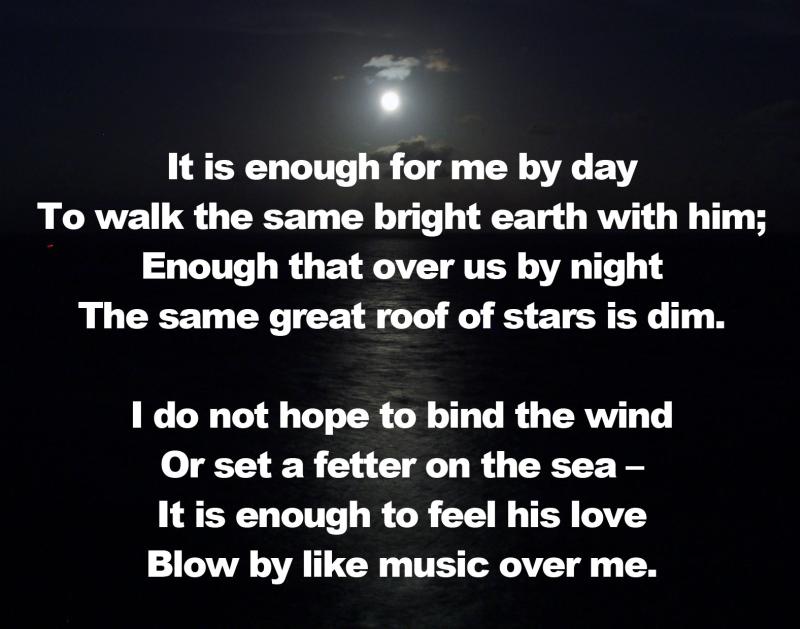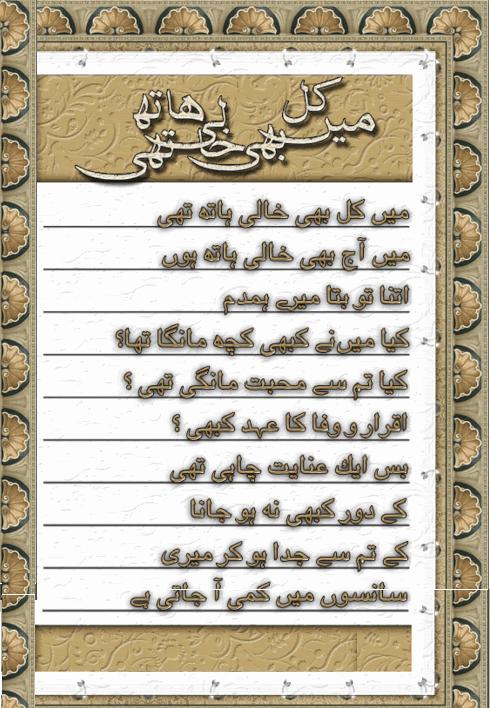Sad Poetry in English Biography
Source(Gogle.cop.pk)John Elia (Urdu: جون ایلیا, also transliterated into English as Jon and Joan; December 14, 1931 - November 8, 2002) was a notable Pakistani Urdu poet, philosopher, biographer and scholar. He was widely praised for his unique style of writing. He was the brother of renowned journalist and psychoanalyst Rais Amrohvi and journalist and world-renowned philosopher Syed Muhammad Taqi, and husband of famous columnist Zahida Hina. He was a man of letters, well versed in Arabic, English, Persian, Sanskrit and Hebrew.
and John Elia was born on December 14, 1931 in an illustrious family of Amroha, Uttar Pradesh. He was the youngest of his siblings. His father, Allama Shafiq Hasan Elia, was deeply involved in artliterature and also an astrologer and a poet. This literary environment modeled him along the same lines, and he wrote his first Urdu couplet when he was just 8.
John Elia was very sensitive in his early teen age. His preoccupations in those days were his imaginary beloved character, Sophia, and his anger at the English occupiers of India. He used to do dramatic presentations of the early Muslim period, and hence his knowledge of Muslim history was recognized by many. According to him, his early poetry reflected the dialogue nature of stage drama.
A close relation of John Elia , Syed Mumtaz Saeed, recalled that Elia also went to Syed-ul-Madaris in Amroha, a Madressah (Koranic school). "John Elia had a way with languages. He could learn them effortlessly. Apart from Arabic and Persian that he had learnt at the Madressah, he acquired great proficiency in English and a smattering of Hebrew."
During his youth, the united India was involved in a Muslim-Hindu feud, which led to the partition of the country on religious lines once British rule ended. Being a Communist, Elia was averse to the idea, but finally accepted it as a compromise. Elia migrated to Pakistan in 1957, and made Karachi his home. Before long, he became popular in the literary circles of the city. His poetry, which bears ample testimony to his wide-ranging reading habits, won him acclaim and approbation. Poet Pirzada Qasim said: "John Elia was very particular about language. While his diction is rooted in the classical tradition, he touches on new subjects. He remained in quest of an ideal all his life. Unable to find the ideal eventually, he became angry and frustrated. He felt, perhaps with reason, that he had squandered his talent." He was a prolific writer, but could not be convinced to publish his work. His first poetry collection Shayad (an Urdu word which means "Maybe") was published in 1991, when he was 60. The poetry presented in this collection added John Elia name in the Urdu literary canon forever. John Elia preface in this collection provided deep insights into his works and the culture within which he was expressing his ideas. The preface can also be considered as one of the finest examples of modern Urdu prose. It covered his intellectual evolution in different periods of time, and his philosophy of poetry, science, religion, etc. The second collection of his poetry Ya'ani was published posthumously in 2003 . Afterwords John Elia trustworthy companion Khalid Ansari has compiled and published his three consecutive collections, “Gumaan” (an Urdu word which means "Illusion") in 2004, “Lekin” 2006 and “Goya” 2008, one more collection ‘Kyon’ is now under processing.
An eminent Urdu literary critic, Dr. Muhammad Ali Siddiqui has called John Elia one of the three most eminent ghazal poets of Urdu of the second half of the twentieth century.
Jaun Elia was an unabashed open anarchist and nihilist in generally a conservative and religious society. His elder brother, Rais Amrohvi, himself a poet and influential intellectual, was brutally murdered by a religious zealot, and ever after his death, John Elia was conscious about what he would say in public.
John Elia was also involved in translation, editing and other activities. His translation of various Mautazalite treatises, Hasan Bin Sabah, and various texts about the Ismaili sect in Islam are a major contribution to the Urdu language. His prose and translations are not easily available. Some of these can be found at Ismaili centers and libraries.
He acquired encyclopedic knowledge of philosophy, logic, Islamic history, the Muslim Sufi tradition, Muslim religious sciences, Western literature, and Kabbala. He also synthesized this knowledge into his poetry that also differentiates him from his modern contemporaries.
Sad Poetry in English in Urdu SMS in Urdu Pics by Wasi Shah Wallpapers About Love on Facebook in English

Sad Poetry in English in Urdu SMS in Urdu Pics by Wasi Shah Wallpapers About Love on Facebook in English

Sad Poetry in English in Urdu SMS in Urdu Pics by Wasi Shah Wallpapers About Love on Facebook in English

Sad Poetry in English in Urdu SMS in Urdu Pics by Wasi Shah Wallpapers About Love on Facebook in English

Sad Poetry in English in Urdu SMS in Urdu Pics by Wasi Shah Wallpapers About Love on Facebook in English

Sad Poetry in English in Urdu SMS in Urdu Pics by Wasi Shah Wallpapers About Love on Facebook in English

Sad Poetry in English in Urdu SMS in Urdu Pics by Wasi Shah Wallpapers About Love on Facebook in English

Sad Poetry in English in Urdu SMS in Urdu Pics by Wasi Shah Wallpapers About Love on Facebook in English

Sad Poetry in English in Urdu SMS in Urdu Pics by Wasi Shah Wallpapers About Love on Facebook in English

Sad Poetry in English in Urdu SMS in Urdu Pics by Wasi Shah Wallpapers About Love on Facebook in English

Sad Poetry in English in Urdu SMS in Urdu Pics by Wasi Shah Wallpapers About Love on Facebook in English

Sad Poetry in English in Urdu SMS in Urdu Pics by Wasi Shah Wallpapers About Love on Facebook in English

Sad Poetry in English in Urdu SMS in Urdu Pics by Wasi Shah Wallpapers About Love on Facebook in English

Sad Poetry in English in Urdu SMS in Urdu Pics by Wasi Shah Wallpapers About Love on Facebook in English

Sad Poetry in English in Urdu SMS in Urdu Pics by Wasi Shah Wallpapers About Love on Facebook in English

Sad Poetry in English in Urdu SMS in Urdu Pics by Wasi Shah Wallpapers About Love on Facebook in English

Sad Poetry in English in Urdu SMS in Urdu Pics by Wasi Shah Wallpapers About Love on Facebook in English

No comments:
Post a Comment